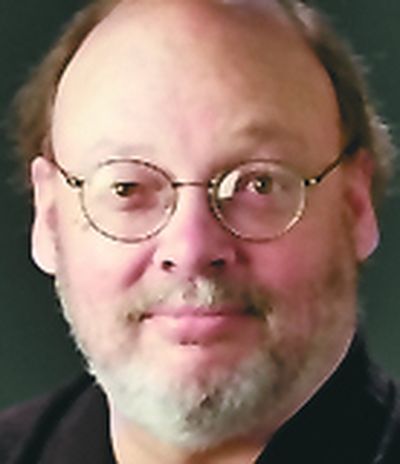Blanchette: Science of good sense keeps champ on course

Like a lot of enterprising business travelers, Kira Powell managed to sneak in a round of golf while on the road this week.
Unlike any of them, she had to sneak her clubs – three of them, anyway – in with her science project.
And on the eve of making her presentation at the Intel International Science and Engineering Fair in Pittsburgh, the Odessa High School senior relaxed with 18 holes at the Bob O’Connor course at Schenley Park. OK, sort of relaxed. She won’t be keeping the scorecard as a souvenir.
“Let’s not talk about it,” she said.
Whether this gives her challengers hope when the State 2B/1B golf tournament opens Tuesday in Lakewood remains to be seen. They could certainly use some. Powell has won the last two state titles, and has never finished lower than third since her first trip to state in the eighth grade.
But that’s about all the handicapping we’ll get into.
This is more of an arts and sciences story – the arts of balance, compromise, flexibility and small-town living, among more tangible arts like the golf swing.
And the science of, well, science.
Kira Powell is a scientist. This big deal in Pittsburgh? Nobel winners are among the judges, and Powell won best-of-category for plant science at the same event in Los Angeles a year ago. Her work in developing sodium polyacrylate to increase yields in dry-land farming isn’t just test-case postulating.
“We had some people in Haiti email us,” Odessa science teacher Jeff Wehr said. “We emailed them the paper and let them give it a shot and they had some great success.”
But returning to the Intel event this year posed a problem. It started Sunday.
The district golf tournament was Monday at Liberty Lake.
This was an issue not just for Powell and Odessa-Harrington coach Sam Read, but for entire District 7B golf community, it seems. She’s won district the last two years by 31 and 43 strokes. Everyone’s elevated when the state champion comes from your league. And it wasn’t like Powell wanted to blow off districts to go play in some higher-level junior event – the sort of thing increasing the angst of high school soccer coaches these days.
So the coaches and administrators of 7B worked out a happy alternative.
Golfers who had a school-related conflict for either the subdistrict or district meets could apply their scores from an earlier all-league event in Colville – where she shot a 79 – for state-qualifying purposes. They just couldn’t be the day’s champion in absentia.
This wasn’t the Powell Rule, necessarily. There were some AP testing conflicts, as well. But Powell was “very grateful.
“It’s nice to see an acknowledgement that all activities are important and that people are willing to do their best to make it work out,” she said. “I’m glad I didn’t have to make a choice.”
This forum has been used before to dart school and activities association types who occasionally seem more concerned with serving their policy manuals than kids, and coaches who tug at athletes – in and out of season – to devote all their energies to a single endeavor. It’s nice to be able to give equal time to well-meaning folks getting it right.
Yes, it’s a compromise that’s probably exclusive to golf. The baseball pitcher isn’t going to be able to mail in a regular-season two-hitter to apply to the playoffs.
And maybe exclusive to small-town schools.
“It’s easy to say pick and choose,” Read said, “and we’ll have to most of our lives. But I think we do a pretty good job getting kids in smaller schools opportunities they wouldn’t have in bigger ones.”
Powell, for instance, said she’s been in school for maybe “nine or 10 days the last month,” what with attending regional and national science events, and after state golf she’ll be off to New Orleans with Odessa’s Knowledge Bowl team. Likewise, her practice time has been limited, but the tradeoff is priceless. She’s already won in excess of $30,000 in scholarships over the last couple of years to apply to her schooling next year at Colorado School of Mines.
In Pittsburgh, she’s among students from around the world presenting ideas that are already seeing practical application – bomb-detection technologies and human identification software.
“These aren’t baking-soda-and-vinegar volcanoes,” Wehr said.
Which isn’t to say the idea can’t have some humble roots – as with Powell’s sodium polyacrylate work. That’s the stuff in Pampers which, uh, does the job.
“It sounds funny, but I work as a lifeguard at the local pool,” she said, “and I noticed that little kids’ diapers – they weren’t nasty, but they absorbed a lot of water, and I wondered if there might be some agricultural applications.”
Last year, with the help of Odessa farmer Jeff Schibel, she tried it on test plots and saw yield increases of more than 20 percent. This year she’s moved on to treating the seeds directly “so it can be done industrially instead of on the farm.”
The judges’ decision comes down today. The golf course awaits next week. Thanks to some artful thinking, sport didn’t have to take second place to science.